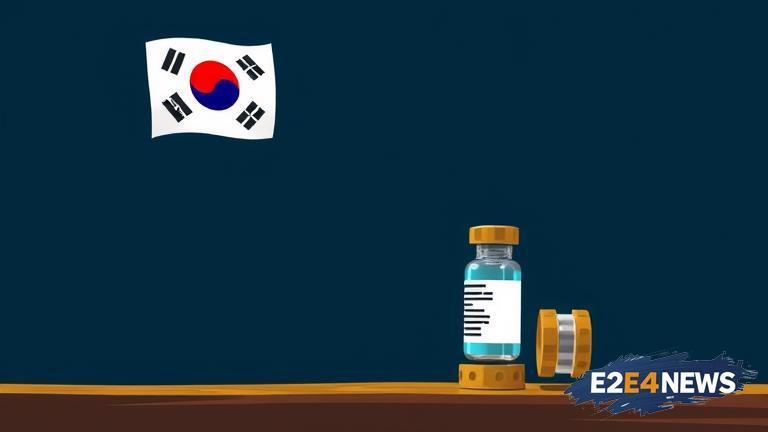In a landmark decision, a South Korean court has acknowledged that a nerve disorder caused by a COVID-19 vaccine can be considered a work-related injury. The ruling, which was made in response to a lawsuit filed by a worker who developed a nerve disorder after receiving a COVID-19 vaccine, is expected to have significant implications for workers who have suffered similar injuries. The court’s decision is based on the idea that workers who are required to receive COVID-19 vaccines as part of their job duties should be protected in the event that they experience adverse reactions. The nerve disorder in question, which is known as Guillain-Barré Syndrome, is a rare but potentially serious condition that can cause muscle weakness, numbness, and paralysis. According to the court, the worker in question developed Guillain-Barré Syndrome after receiving a COVID-19 vaccine, and the condition was severe enough to require hospitalization and ongoing medical treatment. The court’s ruling is significant because it recognizes that COVID-19 vaccines, like any other vaccine, can cause adverse reactions in some individuals. The decision is also expected to have implications for workers who have developed other types of injuries or illnesses as a result of receiving COVID-19 vaccines. The South Korean government has been actively promoting COVID-19 vaccination efforts, and many workers have been required to receive vaccines as a condition of employment. However, some workers have reported experiencing adverse reactions, including nerve disorders, blood clotting, and other serious conditions. The court’s ruling is a major victory for workers who have been affected by COVID-19 vaccine-related injuries, and it is expected to pave the way for similar claims in the future. The decision is also likely to have implications for the development of COVID-19 vaccine policies and protocols, particularly with regard to worker safety and compensation. In addition to recognizing the nerve disorder as a work-related injury, the court also ordered the worker’s employer to provide compensation and benefits. The ruling is expected to set a precedent for similar cases, and it may lead to changes in the way that COVID-19 vaccines are administered and monitored in the workplace. The South Korean government has announced plans to review the court’s decision and to consider revisions to its COVID-19 vaccine policies. The decision has also sparked debate about the safety and efficacy of COVID-19 vaccines, with some experts arguing that the benefits of vaccination outweigh the risks. However, others have raised concerns about the potential for adverse reactions, particularly in individuals with pre-existing medical conditions. The court’s ruling is a significant development in the ongoing debate about COVID-19 vaccines, and it is likely to have far-reaching implications for workers, employers, and public health officials. As the COVID-19 pandemic continues to evolve, it is likely that there will be ongoing discussions about the safety and efficacy of COVID-19 vaccines, as well as the need for effective policies and protocols to protect workers and prevent adverse reactions. The South Korean court’s decision is an important step forward in recognizing the rights of workers who have been affected by COVID-19 vaccine-related injuries, and it is expected to have a lasting impact on the way that COVID-19 vaccines are administered and monitored in the workplace. The ruling is also a reminder of the importance of prioritizing worker safety and well-being, particularly in industries where workers are required to receive COVID-19 vaccines as a condition of employment. In conclusion, the South Korean court’s decision to recognize a COVID-19 vaccine-linked nerve disorder as a work-related injury is a significant development that is expected to have far-reaching implications for workers, employers, and public health officials. The ruling is a major victory for workers who have been affected by COVID-19 vaccine-related injuries, and it is likely to pave the way for similar claims in the future.





